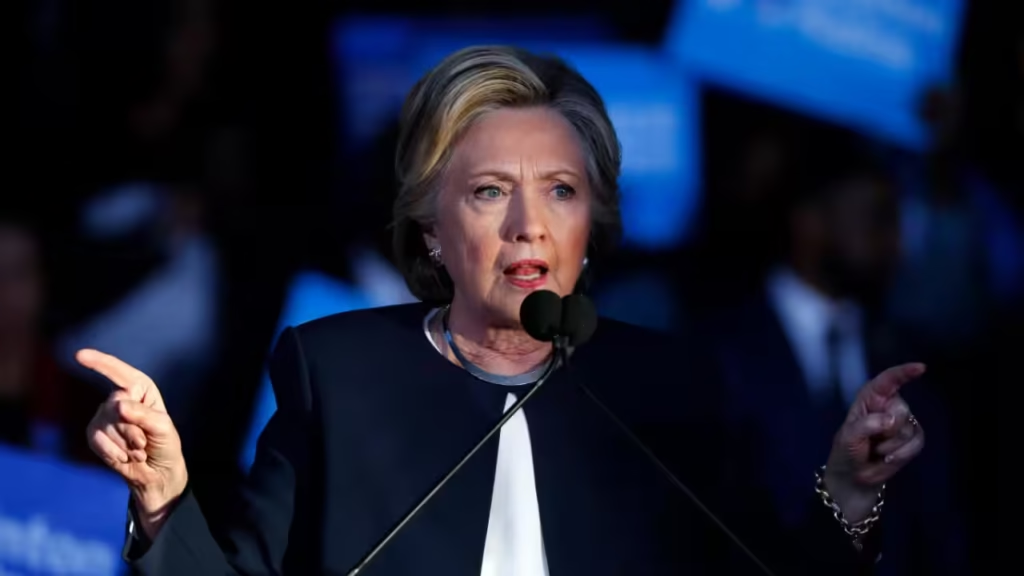The Clinton Foundation, the global non-profit run by former U.S. President Bill Clinton and his family, accepted a $1 million donation from the government of Qatar in 2011—while Hillary Clinton was serving as U.S. Secretary of State. The donation was never reported to the State Department, despite an ethics agreement that required the foundation to disclose such foreign contributions.
The $1 million pledge was reportedly made to mark Bill Clinton’s 65th birthday, and Qatari officials even sought a meeting with him to present the check. However, questions are now being raised over whether this contribution should have been reviewed by the U.S. government, as outlined in the ethical rules Hillary Clinton agreed to follow when she took office.
Ethics Agreement and Foreign Donations
Before becoming Secretary of State in 2009, Hillary Clinton signed a memorandum of understanding that required her family’s foundation to notify the State Department of any new or significantly increased donations from foreign governments. The purpose of the agreement was to prevent any potential conflicts of interest between her public duties and private philanthropic work.
Qatar was already a donor to the Clinton Foundation before 2009, and the foundation claims the 2011 gift did not qualify as a “material increase” in support, meaning it did not need to be disclosed. However, the State Department says it has no record of being informed about the donation.
This has led to criticism from ethics experts and political opponents who argue that the donation—large and undisclosed—could be seen as an attempt to influence U.S. foreign policy through financial support of a Secretary of State’s family charity.

Emails and Public Disclosure
The story first came to light through hacked emails published by WikiLeaks. In one of those emails, a foundation official mentioned the Qatari pledge and said Qatar’s ambassador wanted a five-minute meeting with Bill Clinton to deliver the check. That meeting’s outcome remains unclear, and the Clinton Foundation has not confirmed whether it happened.
Brian Cookstra, a spokesman for the Clinton Foundation, stated that the Qatar gift did not represent a new or significantly increased donation, and thus did not trigger the requirement for disclosure. He emphasized that Qatar’s contributions were part of its broader support for humanitarian work and not tied to specific programs.
However, critics argue that the line between “material” and “non-material” increases in donations remains blurry and is ultimately defined by the foundation itself. This ambiguity has fueled concern about potential loopholes in the agreement designed to promote transparency.
A Pattern of Oversights?
This is not the first time the Clinton Foundation has been scrutinized for failing to report foreign donations. Reports indicate that at least eight other countries—including Algeria and the United Kingdom—gave new or increased funding during Clinton’s time at the State Department without those gifts being reviewed as required.
In Algeria’s case, the country donated for the first time in 2010, yet the State Department was not informed. The foundation later called this an oversight. The United Kingdom nearly tripled its donations over three years, but the foundation claimed this did not count as a material increase.
These instances suggest a broader pattern in which the Clinton Foundation either misunderstood or failed to follow the terms of its ethics agreement. Although the foundation has often insisted that foreign support was vital for its global health and development programs, critics question whether this justification undermines the transparency the agreement was supposed to uphold.
Political Fallout
The undisclosed Qatar donation has been heavily criticized, particularly during Hillary Clinton’s 2016 presidential campaign. Opponents, including then-candidate Donald Trump, used the revelation to argue that foreign governments may have received special access or influence through their donations to the foundation.
While no concrete evidence has emerged proving that any specific foreign government influenced Clinton’s decisions as Secretary of State, the controversy has raised serious ethical questions. It also reinforced broader voter concerns about transparency, trust, and the blurred lines between public office and private influence.
Spokespersons for Hillary and Bill Clinton did not respond to questions about the Qatar donation. Meanwhile, Qatari officials declined to comment on the matter, including whether the meeting with Bill Clinton ever occurred.
Future Promises
In response to the controversy, the Clinton Foundation announced that it would stop accepting donations from foreign governments if Hillary Clinton were elected president. It also said it would spin off any programs dependent on such funding to maintain public confidence in its operations.
This commitment was aimed at putting to rest questions about potential conflicts of interest. However, critics have argued that the promise came too late—and that more proactive steps should have been taken when Hillary first assumed office in 2009.
Transparency advocates say that regardless of whether rules were technically broken, the foundation’s decisions show a lack of judgment in handling sensitive donations that could appear unethical.
Final Thoughts
The $1 million Qatar donation to the Clinton Foundation has become a key example in the ongoing debate over the influence of money in politics. It raises important questions about how public officials and their families should manage financial relationships with foreign governments—and whether existing rules are sufficient to prevent undue influence.
In an era where public trust in government is fragile, even the appearance of impropriety can have lasting effects. The Clinton Foundation’s handling of foreign donations while Hillary Clinton served as Secretary of State will likely remain a reference point in future discussions about ethics in public service.



